The Bees & Refugees Advocacy and Research Team produces quarterly projects relevant to our organisation and the causes we care about. Check out our most recent article, ‘Climate Refugees Don’t Want to Be Climate Refugees’ below!
Climate Refugees Don’t Want to be Climate Refugees: Why the response to climate migration requires an anti-colonial makeover
As nations continue to struggle for resource distribution internationally and at home due to generations of exploitation, it’s clear that colonial legacies continue to affect the daily reality and future prospects of millions of individuals and their communities across the globe. The nations that overconsume, under-resource, and create the most ecological damage are not the ones paying the price – rather, the peoples living under continued colonial regimes are, both metaphorically and literally, struggling to stay afloat. We are witnessing just the beginning of a mass forced migration period caused by climate change and its devastating effects, but the world is not ready to reckon with this reality. The science speaks clearly – according to a report by the World Bank, 216 million people are set to be displaced due to climate change by 2050, of which at least one quarter will migrate across national borders. To affect this trajectory at all, and to provide safety and dignity to all human life, there must be fundamental changes to international migration and asylum policies and reparations for the wreckage left in colonialism’s wake.
The Global North is indisputably driving climate change
Due to its unrestrained consumption of fossil fuels, deforestation and agricultural activity over the past 100 years, it is estimated that the so-called Global North is responsible for 92% of greenhouse gas emissions.
This appropriation of the shared atmosphere is a reflection of the Global North’s dependency, past and present, on colonising the earth’s natural resources. Whilst the vastly colonised Global South has contributed negligibly to greenhouse gas emissions, it is left disproportionately affected by the ecological damage that follows. The human cost has been illustrated most recently by the nationwide flooding in Pakistan. But in the West too, you don’t have to look far to see the continuum of centuries of environmental racism which means that for many racial and ethnic minorities, the likelihood of being affected by climate change is much higher. In the US, “racialised spacial patterns” have allowed predominantly Black and African American neighbourhoods to suffer the worst impacts of Hurricane Katrina, and more recently Hurricane Ida when they hit the Deep South , due to the implementation of discriminatory environmental policies and the displacement of low-income communities by gentrification to areas with insufficient flood protection.
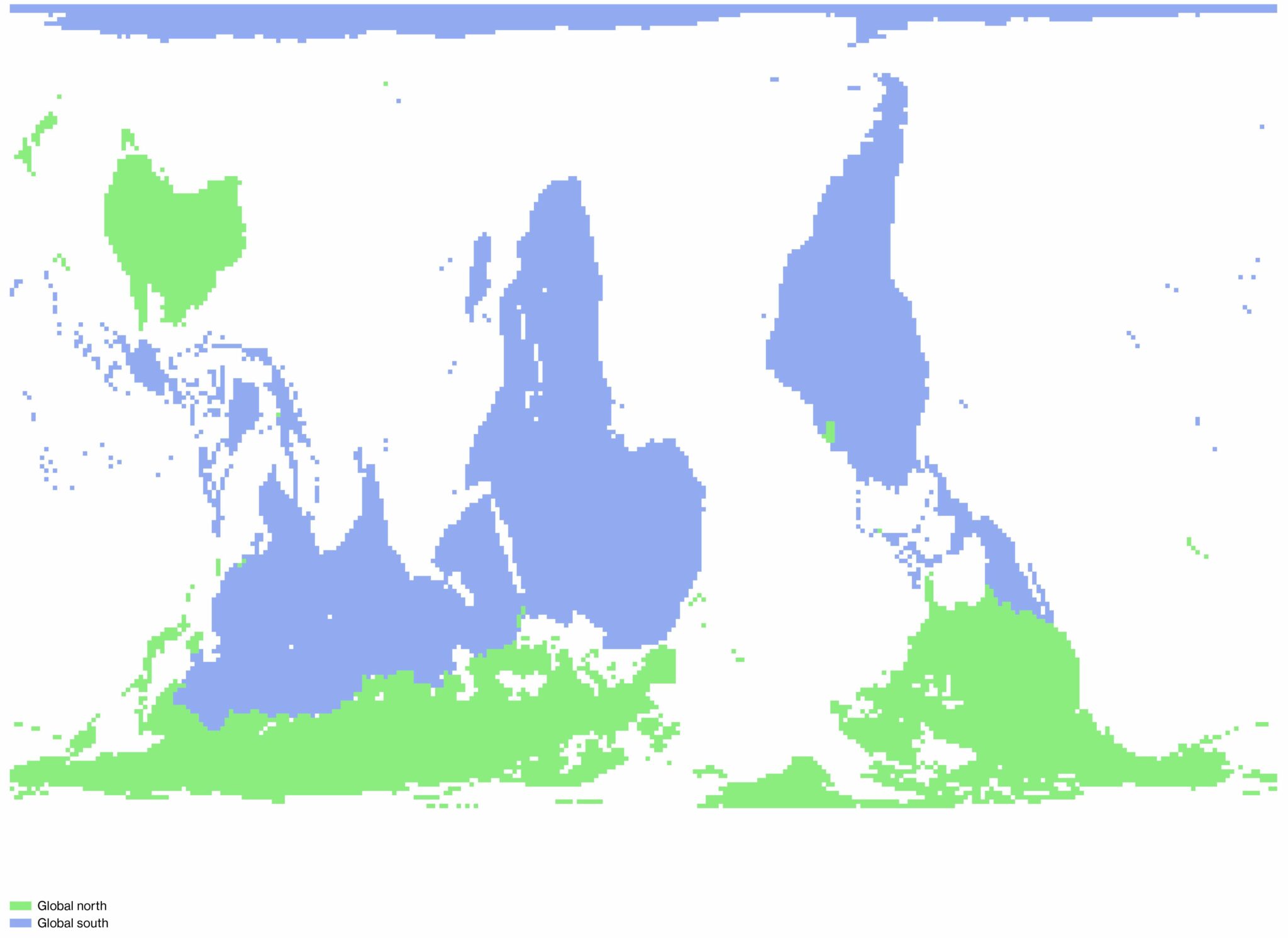
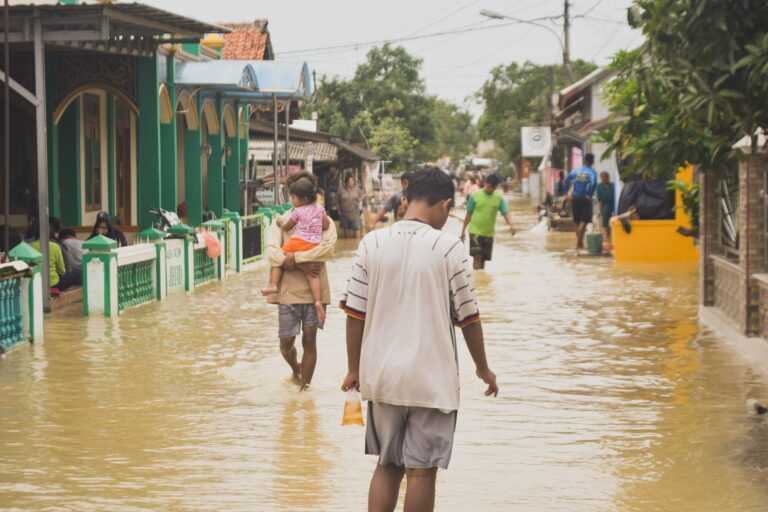
Increases in temperature and the severity of weather patterns continue, and exploited communities have been left without vital resources or the infrastructure to rebuild traditional, productive relationships with their land due to the failures of multilateral institutions to remedy past environmental and social damage. These unlivable conditions, compounded by the effects of other ecological stressors, are pushing the displacement of people internally and across borders in search of security.
With the increasing rate at which climate disasters are taking place, a rise in forced migration is unavoidable. In the absence of support and protection through international migration frameworks, currently the only viable options to flee are through alleged “illegal” and unsafe routes.
The international community, in the chokehold of the Global North, has so far failed to effectively establish robust pathways for people fleeing hardship as a consequence of ecological crises and those crises’ impacts on societies, economies, and politics. Why? Because dismantling the current, long-established system of global governance would threaten the imbalance of power and wealth created by the Global North to feed its capitalist, nationalist and colonial agenda and to serve its own interests.
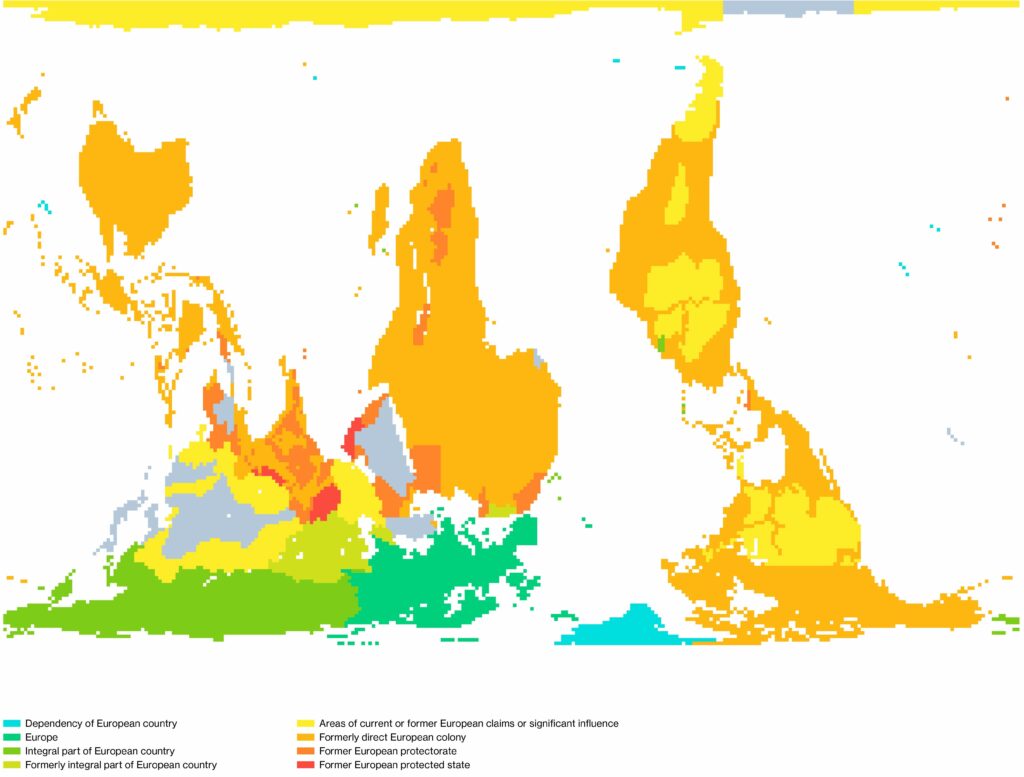
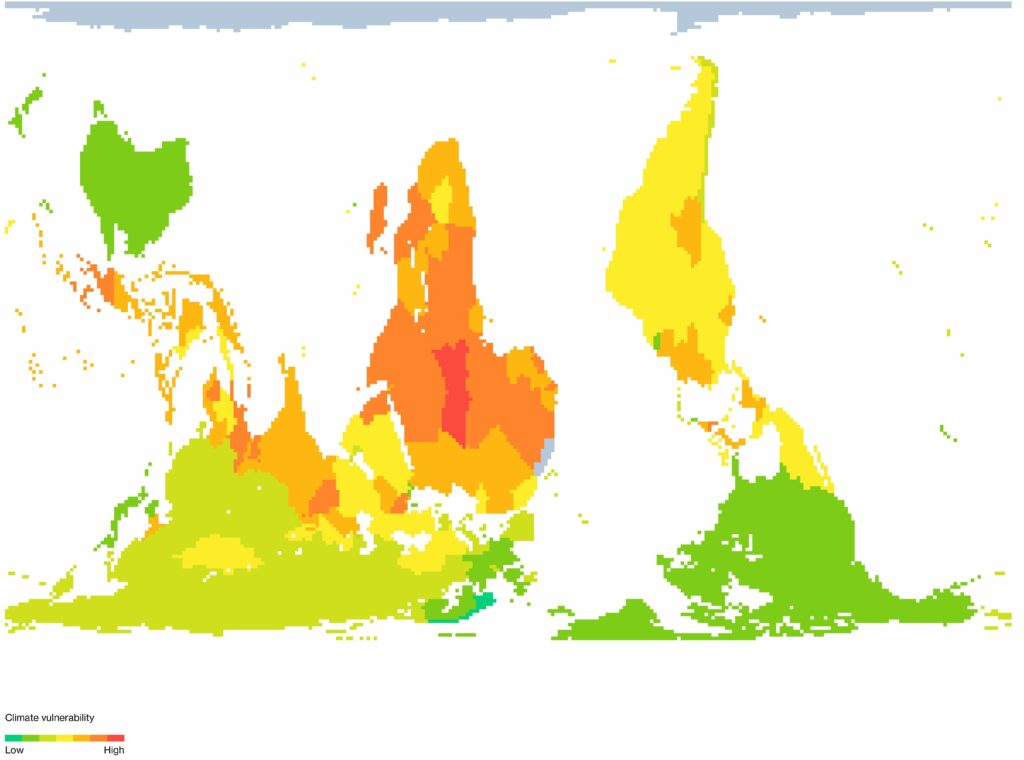
Figure 2: Comparison between European engagement (left) and climate vulnerability (right) clearly shows the correlation between high levels of European engagement and increased risk of climate vulnerability.
Media and policy work hand in hand to close borders and minds
Language is a key instrument in the politics of climate migration and has been weaponized to create narratives, and in turn, policies, which are exclusionary and hostile towards climate refugees. In fact, climate refugees are often not even called climate refugees, they are instead labelled “economic migrants” – a term which fails to reflect the reality in their country of origin and the driving factors of their displacement. The UK media rhetoric, for example, sculpts an anti-immigrant narrative able to dictate the public perception of climate migration, regardless of whether or not it aligns with the factual reality of the situation. Media outlets tend to portray a singular concept of migration; fearful depictions of increasing numbers of migrants entering Global North nations, without a nuanced framing of different situations, motivations and journeys.
In general, the discourse on climate migration in the media centres around creating the idea of an influx of migrants rather than telling the human stories. Language is often shaped around metaphors of water, citing “waves of migration” and “floods of migrants.” The apocalyptic images that some of these articles evoke, of unimaginable deluges and tsunamis, expose a deeper incentive of fear-mongering; labelling climate refugees as an invasive, unstoppable force; a threat to the authority of the state, and the safety of the people living within it. This dehumanising narrative speaks of the racialised anxieties that prevail in the migration management practices of many European governments.
Exclusionary and hostile policies and frameworks, such as Fortress Europe, have been implemented to protect the colonial powers that be and absolve them of responsibility for the continued suffering and exploitation of non-white communities. Climate refugees are constantly being denied their rights to asylum and free movement and are at risk of inhuman, unlawful, and xenophobic pushbacks and deportations.
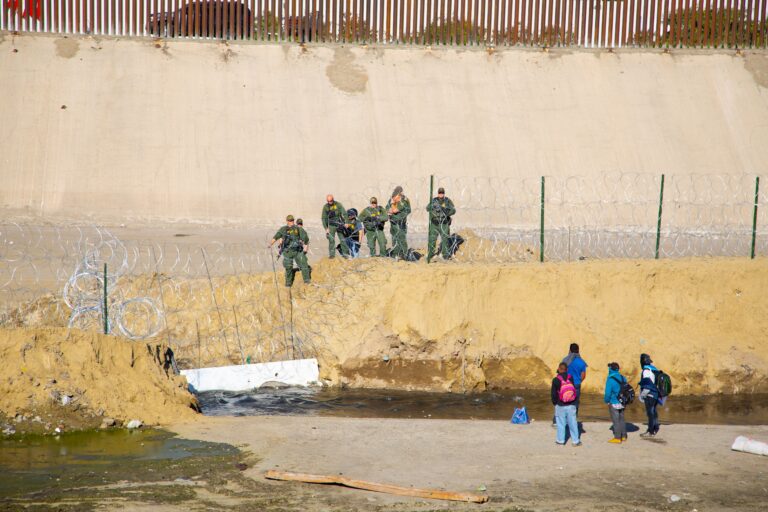
In real terms, this means that people from heavily exploited countries, fleeing danger and persecution as a direct or indirect effect of climate change, are being intentionally prevented from breaking out of this ongoing cycle in order to seek safety, security and refuge – fundamentals enshrined within the foundations of human rights principles. For example, Europe continues to trap thousands of refugees and migrants in countries where they face inhuman treatment and are subjected to abhorrent crimes. In a clear demonstration of the racial hierarchy that is being actively preserved by global powers, Europe’s nations have shown the capacity to welcome influxes of white refugees of the war on Ukraine – a demonstration of clear double standards at play when it comes to determining the status of refugees and facilitating their resettlement.
Human rights mechanisms continue to be instrumentalized by global powers to exclude and criminalise marginalised communities, particularly when it comes to migration and climate justice. Protective frameworks that are supposed to enshrine justice, peace and security for all human beings do not prescribe sanctuary for climate refugees as climate-related dangers still are not recognised under the 1951 Refugee Convention. So, while flooding in Pakistan affects 33 million people and leaves 1,500 people dead, and droughts make life increasingly unliveable across Africa and the Middle East, little thought is being given to the people facing the precarity of the border in eras of natural disasters, rising sea levels and extreme heat. The term “climate apartheid” is legitimised by the encroaching rising tide showing us that whilst some will swim; climate refugees will sink.
Justice and Protection for Climate Refugees
For climate justice to be achieved, our response to climate change and our approach to carbon emissions, the atmosphere and all the ecological complexity of planetary life must be decolonised. This means that the Global North must stop fossil fuel consumption immediately, and pay its climate debt, whilst providing comprehensive ecological reparations to nations which have been colonised, exploited and left to bear the brunt of climate change.
Moreover, climate migration management must be anti-colonial. We must produce counter-narratives which situate the current ecological crisis we are facing within the historical setting of centuries of global environmental, social and resource inequalities that have been governed by the Global North and its colonial exploitation. In order to respect the rights and freedoms of affected communities, fighting colonialism demands acknowledging and confronting injustice, often rooted in racism, the violence of borders, and international order dictated by those benefiting from colonialism past and present, as well as following leadership from marginalised peoples and ensuring meaningful involvement of victims and their communities. In regards ro policy, Bees & Refugees adamantly advocates for increased and accelerated resettlement and access to labour migration to provide safe pathways for migration. We also raise our voices to advance policies for justice, namely climate reparations such as those stipulated in COP conventions to foster climate resilience and prevent refugees from becoming refugees.
The scale must be balanced; colonising nations need to pay up and render all life indispensable and human rights frameworks must be amended to recognise the entire ecology of displacement. By doing so we may start to comprehend what it means to be a climate refugee and the importance of protecting such a label, without the weight of racialisation and xenophobia.


